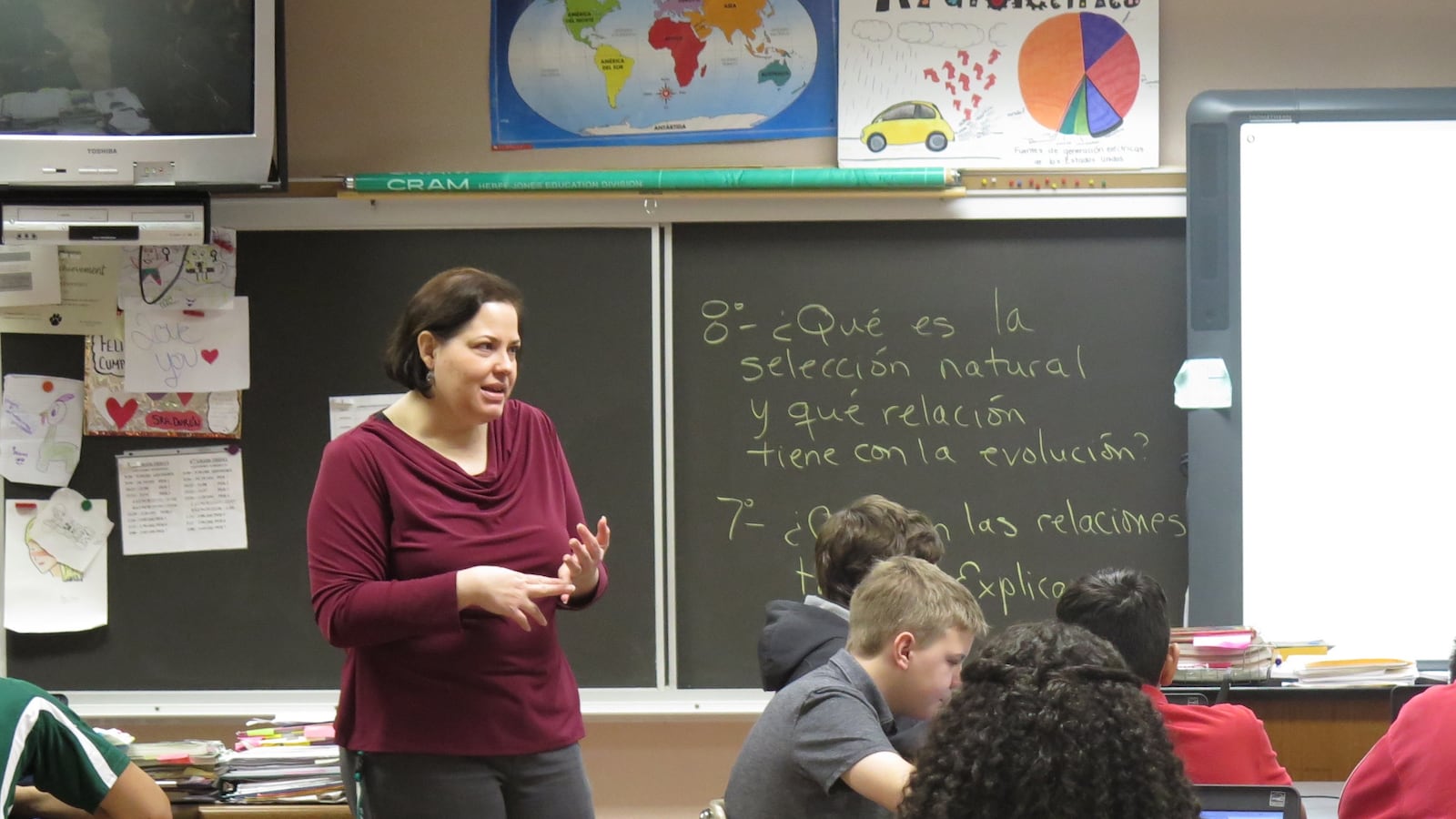The crisis that’s threatening the the future of courses that let students earn college credits while still in high school might get some help from a bill now headed to the governor.
But the move, for now, lets universities off the hook when it comes to paying for it up-front.
The popular “dual credit” courses have been jeopardized by new rules that increased degree requirements for high school teachers of college-level courses. A House bill to address the problem originally called “for universities to put some skin in the game and work to devise a plan” so teachers could get free, or almost-free, college credits toward master’s degrees, said Rep. Tony Cook, R-Cicero, when he presented the bill. But that saddled colleges with incurring those tuition costs without a clear way to fund them.
That’s partially why House Bill 1370 as it was approved by the Indiana House today in a 84-5 vote was more of a study bill — rather than an action bill.
The bill now headed to Gov. Mike Pence asks the state’s Commission for Higher Education to figure out how colleges and other state education institutions can partner with school districts to make sure teachers of dual credit college classes have the training they need under new rules imposed by Indiana’s college accrediting organization.
Last year, the Higher Learning Commission, a regional group that accredits Indiana Colleges, changed rules for high school teachers that teach college-level classes. By 2017 — or unless the state can get a waiver of the rules until 2022 — all dual credit teachers must have a master’s degree or 18 graduate credit hours in the subject they teach.
Almost 75 percent of Indiana’s existing 2,531 dual credit teachers don’t completely meet the new requirements.
The decision to raise the bar for dual-credit teachers comes at a time when Indiana has veered away from pushing teachers to earn master’s degrees.
Shortly before the bill first passed the House in January, House Speaker Brian Bosma, R-Indianapolis, called the state’s move a mistake. But he said the legislature did ease stricter rules last year that had prohibited districts from paying teachers for advanced degrees.
“If there was a mistake over the last several years,” Bosma said. “I would say that might be one of them — the disincentivization of encouraging master’s degrees and additional educational achievement.”

